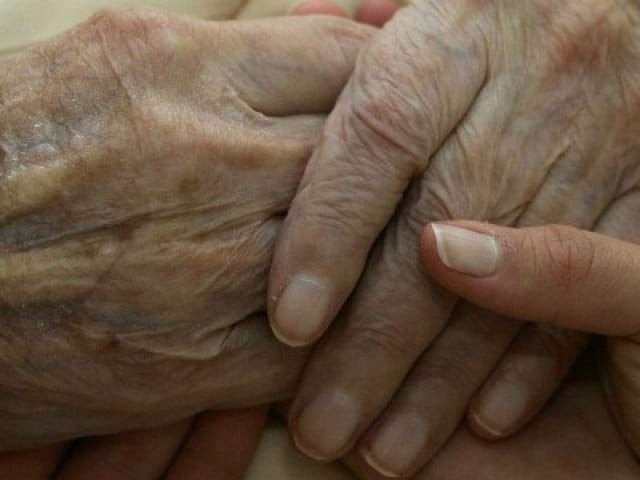No one to take care of senior citizens
Over 13 million elderly persons, without facilities, welfare system

Over 13 million elderly persons, without facilities, welfare system. PHOTO: FILE
There are generous efforts in place for senior citizens in developed countries. Pakistan has the sixth largest population of senior citizens. According to a United Nations population report, the senior citizens made up 7% of the total population in 2012.
Fifteen countries have a high growth of senior citizens’ population around the world, which, along with Pakistan, includes seven other developing countries. Nations around the world are making or amending laws them to tackle this issue, but no action is being taken in Sindh, or the rest of the country.
Senior citizens promised modern health benefits
The Khyber-Pakhtunkhwa, Sindh and Balochistan governments have drafted and passed new laws to facilitate senior citizens, but have yet to develop a mechanism to implement these laws. While in Punjab, no law has been conceived for a welfare system for the elderly.
Pakistan is a signatory of the ‘Madrid Plan of Action on Ageing 2002’, which stipulates that the state is responsible for the welfare of its elderly population and must provide them the basic necessities of life. In Pakistan, only 10% of the population is employed in government sectors. People who do not work in the government sector are often deprived of pensions and free medical treatment.
All the signatories of the Madrid Plan are well on their way to achieve the 17 objectives meant to be completed by 2030 for the welfare of the ageing population. However in Pakistan, a social protection mechanism for the elderly has yet to be devised.
Old and vulnerable: Senior citizens await national policy to safeguard rights
Non-governmental organisations (NGO) working for the welfare and betterment of senior citizens receive minimal funding, which has an adverse effect on local NGOs as there are a handful of them actively making a difference in the lives of the elderly in Pakistan.
These elderly citizens are an asset to the country. They can be a source of guidance based on their experiences, which can benefit the younger generation, benefitting society as a result. The Sindh Senior Citizens Welfare Act was passed three years ago and has yet to be implemented. Four months have gone by since the formation of a 13-member council to oversee senior citizens’ welfare, but they have yet to convene a session despite legal requirement of having such a session every two months.
People’s welfare prime objective: CM
The implementation of the Welfare Act can help protect the rights of the elderly and improve their living conditions but to ensure this, funds must be allocated. The senior citizens, under the Act, will be given citizen cards that will have a 25% discount on transport fares, medicine and groceries. The discount will also apply to entertainment centres, cinemas, theatres, hotels and restaurants.
The card will also help them get concession in treatments at government hospitals and medical centres, with free of cost medicines at their disposal. Apart from that, the Railways and PIA may also be asked to give the senior citizens some concessions on tickets.



















COMMENTS
Comments are moderated and generally will be posted if they are on-topic and not abusive.
For more information, please see our Comments FAQ